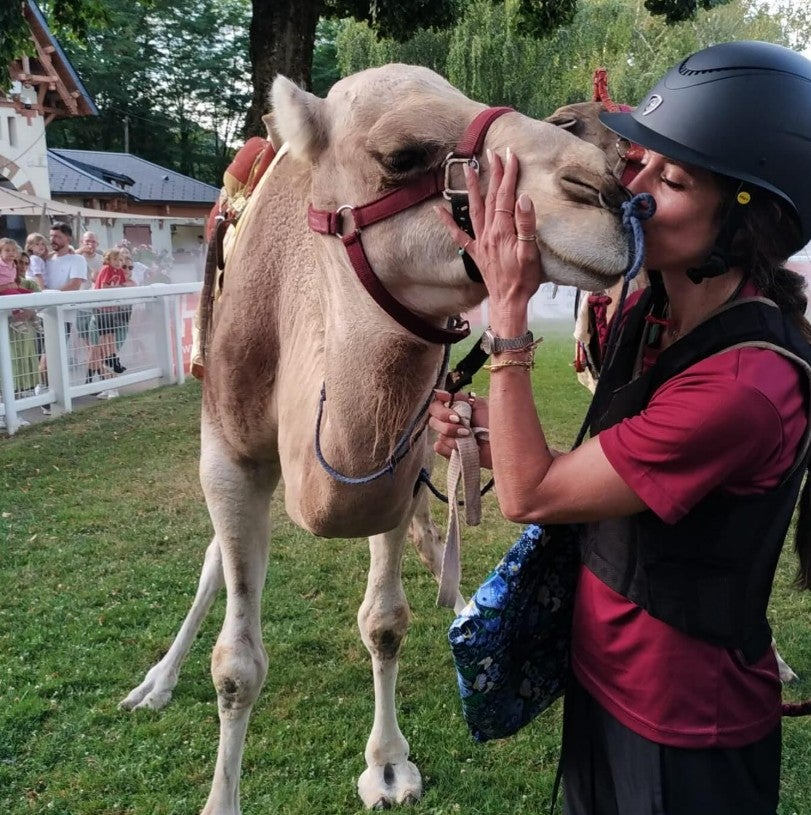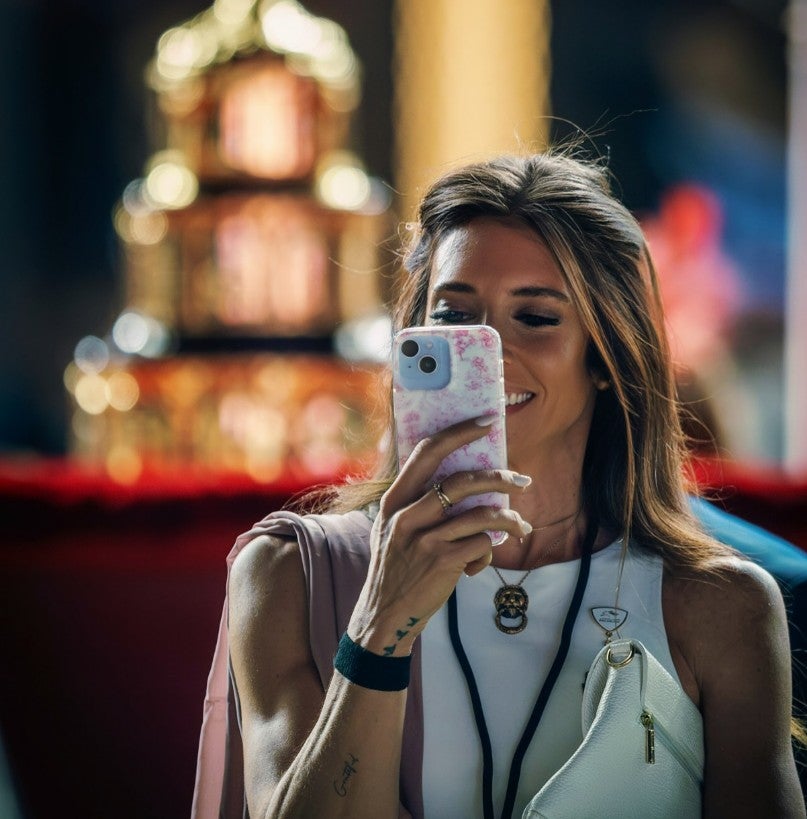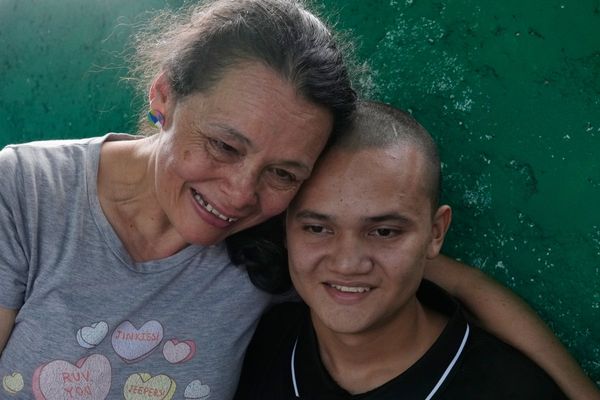
A woman who embraced professional camel riding at 40 now wants to see the sport included in the 2032 Olympics in Brisbane, Australia.
Jennifer Reggio, now 42, spent her formative years in Dubai, beginning horse riding at six. She later became a horse trainer and racer in the United States before returning to Dubai in 2013 to raise her son Liam, now 13.
A decade later, in 2023, Ms Reggio discovered women’s camel racing and was instantly drawn to "give it a try”.
After just two months of intensive training, she secured fourth place in her inaugural 2,000-metre race.
The sport demands considerable skill; riders guide the camels by tapping their necks. While the animals are trained to run straight, they do not always comply.
Ms Reggio said it is necessary to "hold on or know how to fall away" to avoid their powerful feet.

“Camels can decide mid-race to turn in the opposite direction, likely unseating the rider or throwing you off entirely,” she said.
“I’ve had it happen – it’s painful but you get back on.
“That’s the nature of the sport, it’s terrifyingly thrilling.
“Starting something new at 40 is the best thing I can advise to any woman or man.
“We are at our prime – smarter and stronger.
“To other women, take a chance, do what brings you joy and butterflies in your stomach!”

Ms Reggio said she was used to speed as both horses and camels run at about 40mph, but she wasn’t used to “floating on the back of a camel, which is very difficult”.
To be a good camel rider, people need natural balance and strength in mind and body, she said.
“You also need a brave heart.
“Training for racing is more than throwing yourself up there – it takes guts and determination and a lot of balance and patience and confidence.”
To begin with, Ms Reggio found the training “nerve-wracking” because she had less control compared to riding a horse.

In her first 2,000-metre race, as part of the Arabian Desert Camel Riding Club (ADCRC) in 2023, she came in fourth place and was “so proud” of herself.
In the summer of 2023, she went on to race in France and has since competed in Saudi Arabia several times a year.
Since competing, she has realised that there are many misconceptions about camels.
“They’re extremely smart animals, but most people would probably look at a camel and think they don’t have too much going on upstairs.
“The best camel might be on his mark today and unbeatable but, then in the next race, if they’ve had a bad morning and someone was rude to them, they won’t want to do it.”

When she explains her sport to people who are not based in Dubai, many think it is “really strange”.
She added: “It’s always an interesting talking point for people, and obviously they’re very interested to understand how I started, and why I started.
“Most people just don’t think that camels move that fast.”
To those who believe camel racing is unethical, she said: “Camels are a part of really rich history here in the Middle East, and camels were their main form of transportation for years.”
Looking ahead, Ms Reggio is campaigning for the sport to be included in the 2032 Olympics in Australia.
She said: “Camel racing isn’t a sport for the faint-hearted, but when I’m on the track, flying across the desert on one of these incredible animals, there’s nothing else like it.
“That’s why I keep pushing forward and why I’ll never give up on the dream.”
LA Olympics to feature women’s 100m final on day one in event shakeup
Meet British gymnastics’ new star: teenager Abi Martin on stunning breakout year
What hosting the World Series or the World Cup brings to a city financially
Joseph Parker faces boxing ban after failed drugs test
Best Betting Sites UK: Top Online Bookmakers for November 2025
Missouri Sportsbook Promos - Best Missouri Sports Betting Promotions







